![]()
These Are The Signs You Might Be Pregnant
1. Missed Period
 Image Source / Health Shots
Image Source / Health Shots
A missed period is usually the first sign of pregnancy; if no egg is fertilised, the lining of your uterus will break down causing a period. When you become pregnant, your body begins to produce human chorionic gonadotropin (hCG) which helps the body maintain pregnancy and inhibits the release of a mature egg each month.
2. Increased Urination
 Image Source / Medical News Today
Image Source / Medical News Today
An increase in the need to urinate during the first few weeks of pregnancy is very common. When you become pregnant, your kidneys become much more efficient due to the increase of blood that the body pumps; this causes the kidneys to process more fluid than usual, meaning a more frequent full bladder.
3. Tender Breasts
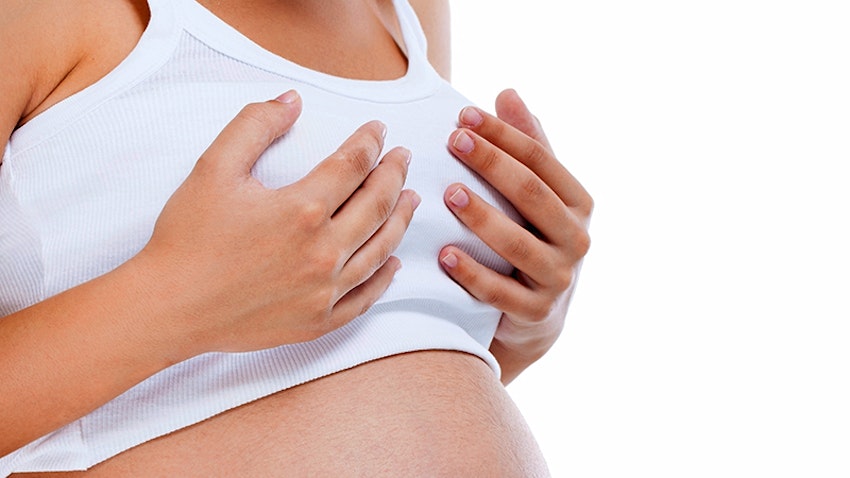 Image Source / Mother & Baby
Image Source / Mother & Baby
Similarly to the days leading up to a period, your breasts can often become tender and sore in the first trimester of pregnancy. The increase of oestrogen and progesterone are the causes of most pregnancy symptoms including this one. The necessary build up of fat and milk glands can also cause breasts to become tender during pregnancy.
4. Breast Changes
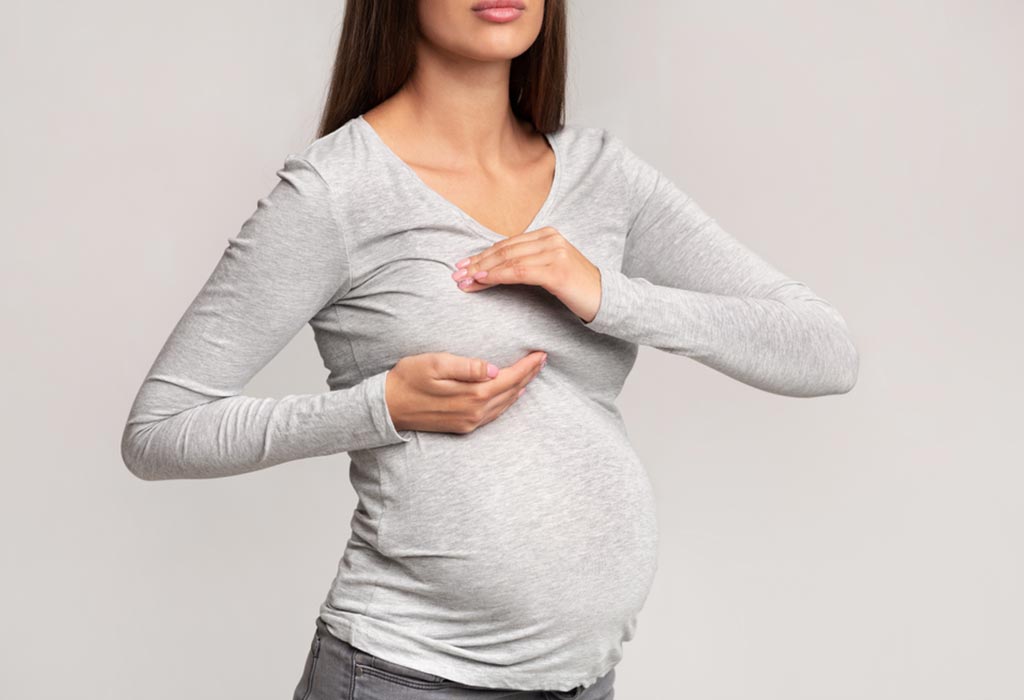 Image Source / FirstCry Parenting
Image Source / FirstCry Parenting
Tender breasts are not the only changes your breasts go through during the early stages of pregnancy and acts as signs that you may be pregnant. Changes in your breasts can begin just 1 week into pregnancy and include, enlargement which can be itchy as the skin stretches; increase in small, blue veins on the breasts due to the body’s increased blood supply; and darker areolas from the hormonal changes occurring throughout the pregnancy.
5. Fatigue
 Image Source / What To Expect
Image Source / What To Expect
Fatigue is a very common symptom experienced by women in their first trimester of pregnancy and it usually fades going into the second. It is not completely known why fatigue/exhaustion is experienced, but a vast change in hormonal balance has been proven to have an impact on energy levels.
6. Mood Swings
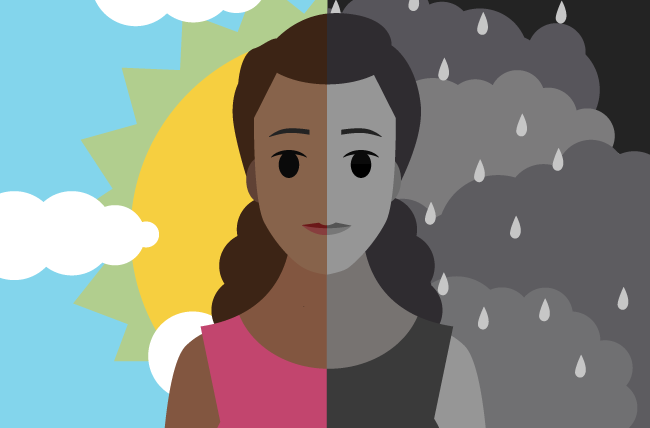 Image Source / Cleveland Clinic Health Essentials
Image Source / Cleveland Clinic Health Essentials
A combination of other pregnancy symptoms and hormone changes can cause mood swings. This works in a similar way to Premenstural Syndrome (PMS) which occurs before a period where changes in hormone levels can cause mood swings and other symptoms. Fatigue, nausea and other pregnancy symptoms can cause a short fuse or negative feelings.
7. Nausea or Sickness
 Image Source / Medium
Image Source / Medium
‘Morning sickness’ is arguably the most common, and earliest sign of pregnancy. Despite the name, this can come on at any point in the day. This can effect your day to day life and if this is the case, anti-sickness tablets can be prescribed to help ease the nausea or sickness. Avoiding foods that trigger nausea can also help to ease the symptom.
8. Food Aversions
 Image Source / Baby Center
Image Source / Baby Center
Food aversions occur when foods you once liked pre-pregnancy become unenjoyable when you are pregnant. During pregnancy, you produce a hormone called Gonadotropin (hCG) and is known to cause food aversions and changes to appetite. Eggs, spicy/fatty foods and meat are all foods that women can be put off when they become pregnant.
9. Cravings
 Image Source / TwinGo Carrier
Image Source / TwinGo Carrier
In the way that early pregnancy can put you off certain foods, it can also put you on to certain foods, making you crave them. There is no evidence to suggests why people experience cravings during pregnancy but they usually consist of fatty foods, or even unusual combinations that you wouldn’t normally enjoy.
10. Sensitive Sense Of Smell
 Image Source / Baby Centre
Image Source / Baby Centre
Also known as Hyperosmia, a heightened and sensitive sense of smell can occur in early pregnancy. This is one of the first symptoms that many women report when becoming pregnant. Studies have shown that there is a link between a sensitive nose and morning sickness, women who have a sensitive sense of smell in early pregnancy are more likely to experience feelings of nausea and sickness.
11. Metallic Taste
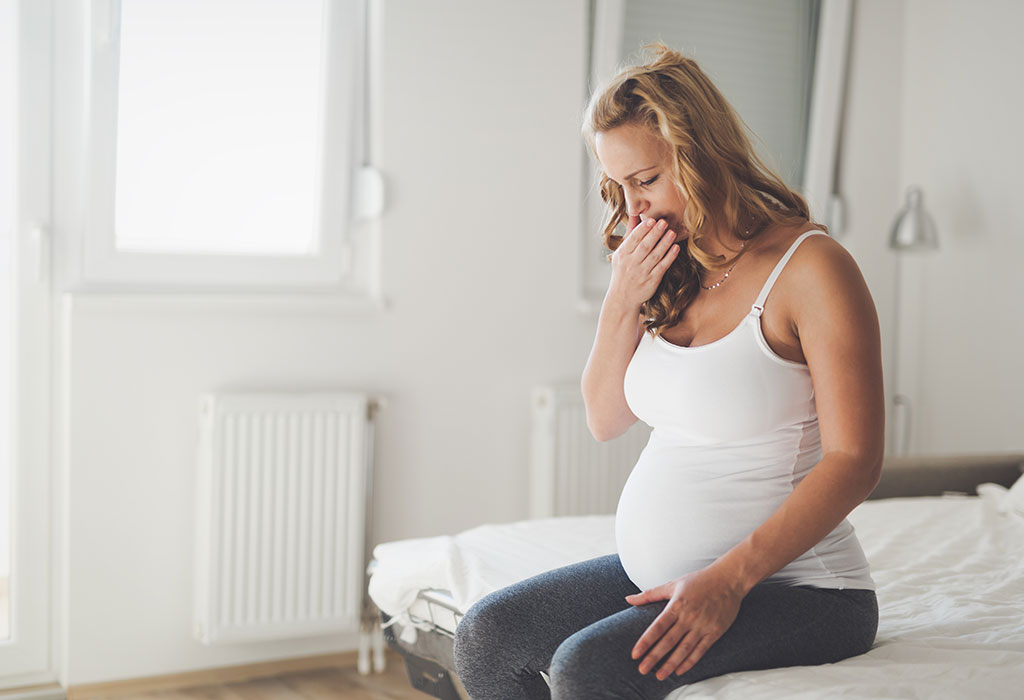 Image Source / FirstCry Parenting
Image Source / FirstCry Parenting
Dysgeusia, or a metallic taste in the mouth, occurs during pregnancy and is thought to be a result of changing hormones. This pregnancy symptom is most common in the first trimester, and usually fades away as the pregnancy progresses. This can cause other pregnancy symptoms such as nausea or food aversions as the taste is reported to be very unpleasant.
12. Smokers Lose Interest
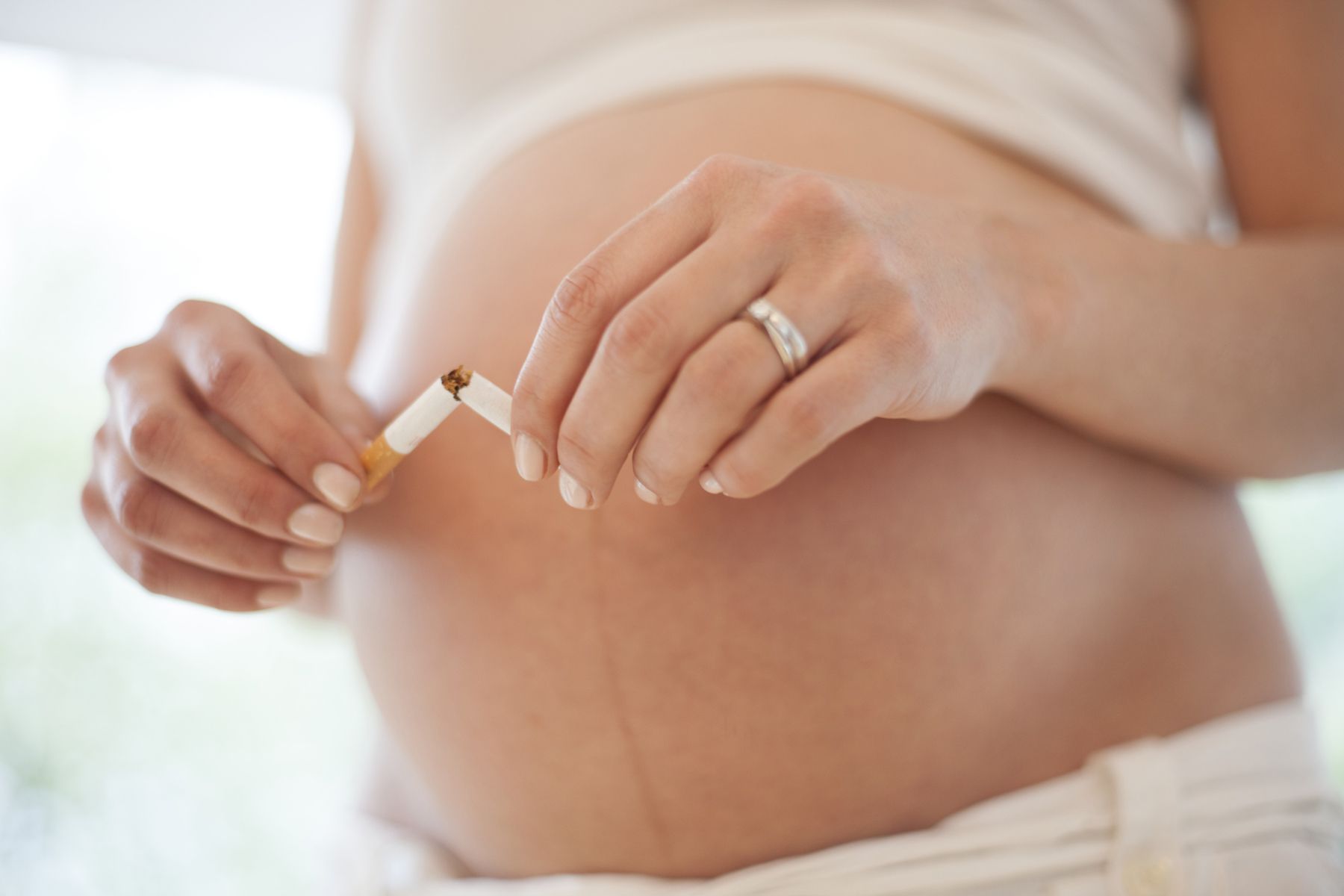 Image Source / Very Well Mind
Image Source / Very Well Mind
Women who smoke and then conceive are more likely to quit smoking than any other time in their life. Continuing to smoke while pregnant can cause extremely harmful consequences for your baby. Every cigarette contains over 4,000 chemicals and can restrict vital oxygen supply to your baby. Continuing to smoke once your baby is born can also increase the risk of infant death syndrome (SIDS), also known as "cot death", so it is essential that you stop smoking before you conceive.
13. Spotting
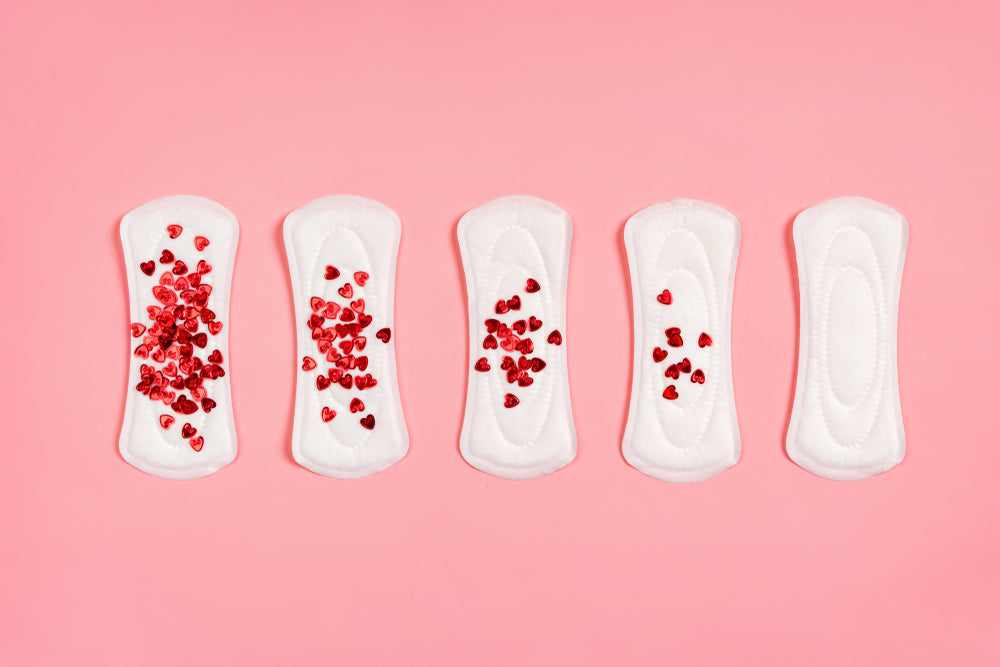 Image Source / Mylo
Image Source / Mylo
Light spotting is one of the earliest signs of pregnancy and occurs when the fertilised egg attaches itself to the lining of the uterus. This is also known as implantation bleeding which is normal and often occurs when your period would have normally been due if not pregnant.
14. Cramps
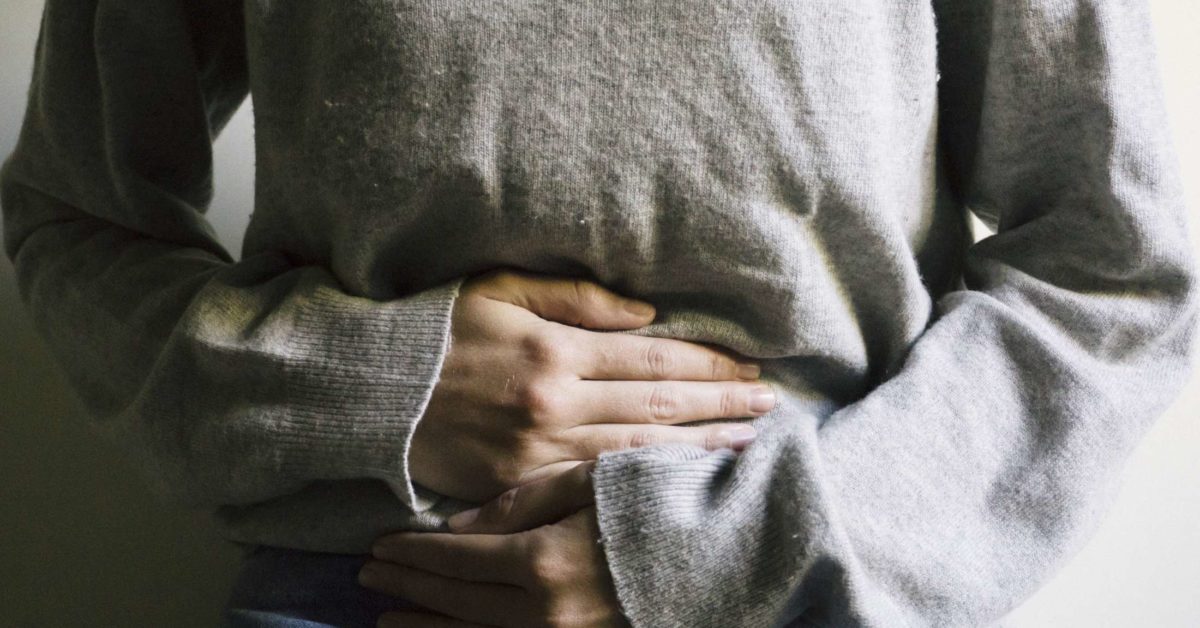 Image Source / Medical News Today
Image Source / Medical News Today
When you become pregnant, it is very normal to feel cramping in your lower abdomen, similar to that of a period. As pregnancy progresses, your uterus grows with your baby, so cramping similar to menstrual cramps are normal. These cramps are normal during the first 12 weeks of pregnancy and can reoccur towards the end of the pregnancy.
15. Temperature Changes
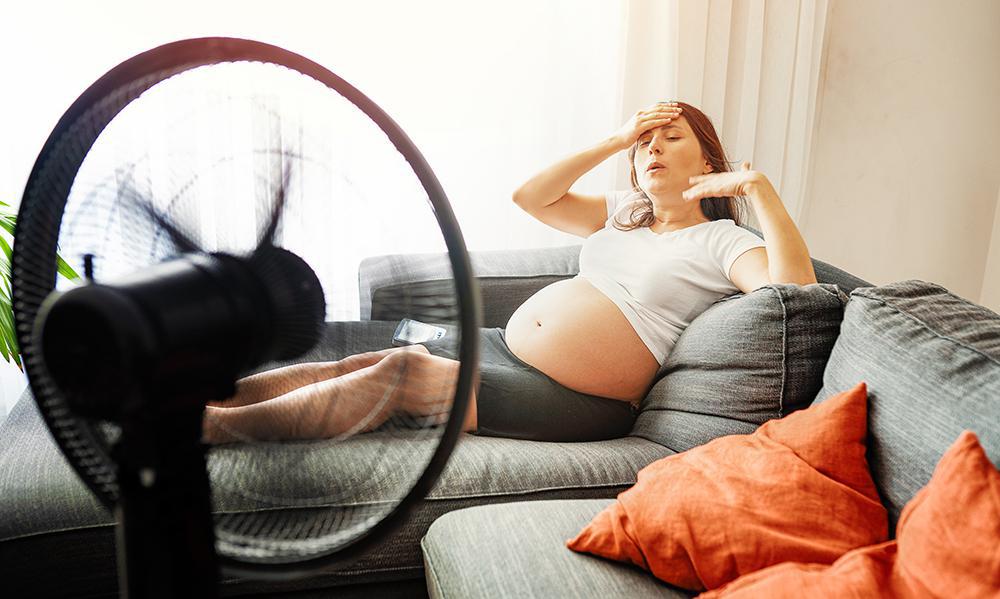 Image Source / Harbor Community Health Centres
Image Source / Harbor Community Health Centres
As your body begins to adapt for your baby, your temperature will fluctuate as a result. The progesterone hormone that rises in pregnancy causes the basal body temperature to increase. Increased body weight and increased blood flow is also known to cause uncomfortable hot temperatures.
16. Bloating
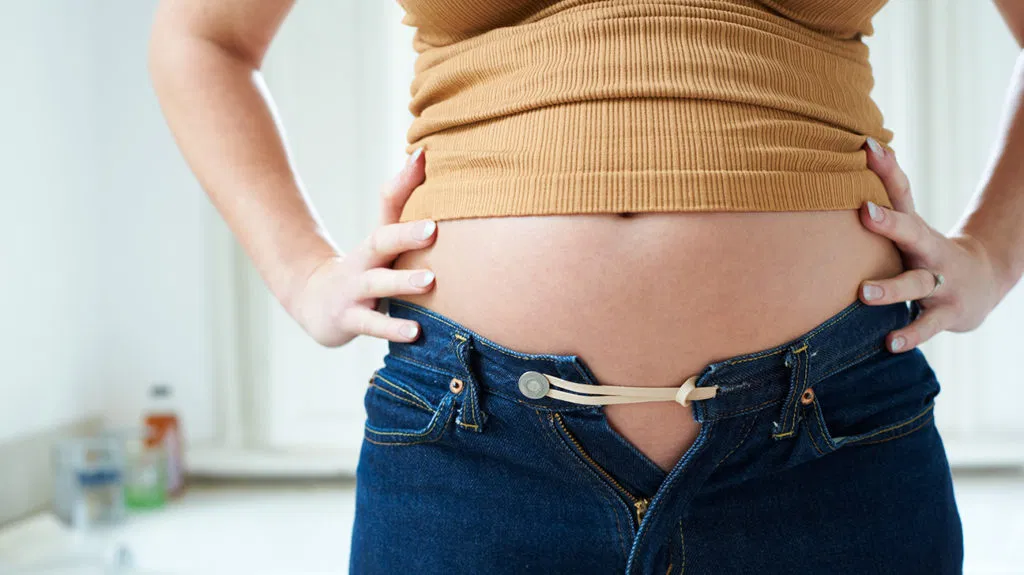 Image Source / Medical News Today
Image Source / Medical News Today
Bloating is a common first sign of pregnancy and can start to show before the first missed period. Progesterone hormone levels increase to prepare your body for pregnancy and is known to slow digestion and make you feel and look bloated. This hormone also helps to relax the muscles in your womb to help it expand, ready for your growing baby.
17. Weight Gain
 Image Source / Healthline
Image Source / Healthline
The average a woman gains weight in the first trimester of pregnancy is 5 pounds. This is a very normal process when becoming pregnant so should not be combatted with any sort of dieting. This is an unhealthy way of reducing weight gain as depriving your body of the nutrition it needs can be harmful to your baby’s development. Instead, focusing on healthy, balanced meals can reduce weight gain while maintaining a habitat safe for your baby to develop.
18. Heartburn
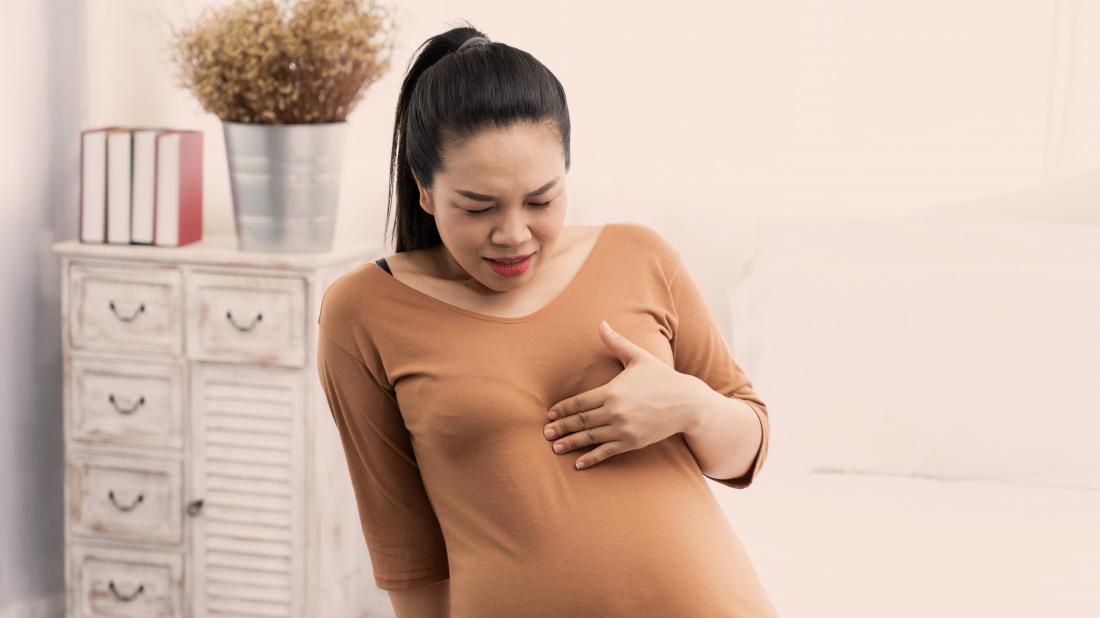 Image Source / Medical News Today
Image Source / Medical News Today
Heartburn is very common among all sorts of people, pregnant or not; however, the chances of developing heartburn is known to increase when you become pregnant. Pregnancy-related heartburn is detected by numerous factors; if feelings worsen when bending over or lying down, and if someone who has never experienced heartburn begins to show that they do.
19. Congestion
 Image Source / Very Well Health
Image Source / Very Well Health
Pregnancy Rhinitis, or congestion, is experienced by 20% (1 in 5) pregnant women. Symptoms of pregnancy rhinitis are similar to hey fever; runny and itchy nose, watering and itchy eyes and sneezing. Research shows that rhinitis is more common in pregnancy as a larger blood volume and changes in hormones increase the likelihood by 10% to 30%.
20. Changes To Skin
 Image Source / BabyCenter
Image Source / BabyCenter
When our period is due, we may notice an increase in blemishes and face acne, and its a similar case when you become pregnant. As your hormones begin to alter and change, your pores are more likely to clog due to an increased level of sebum (oil) causing blemishes. Acne, if it occurs, will calm as your hormones level out later on in pregnancy.
21. Back Pain
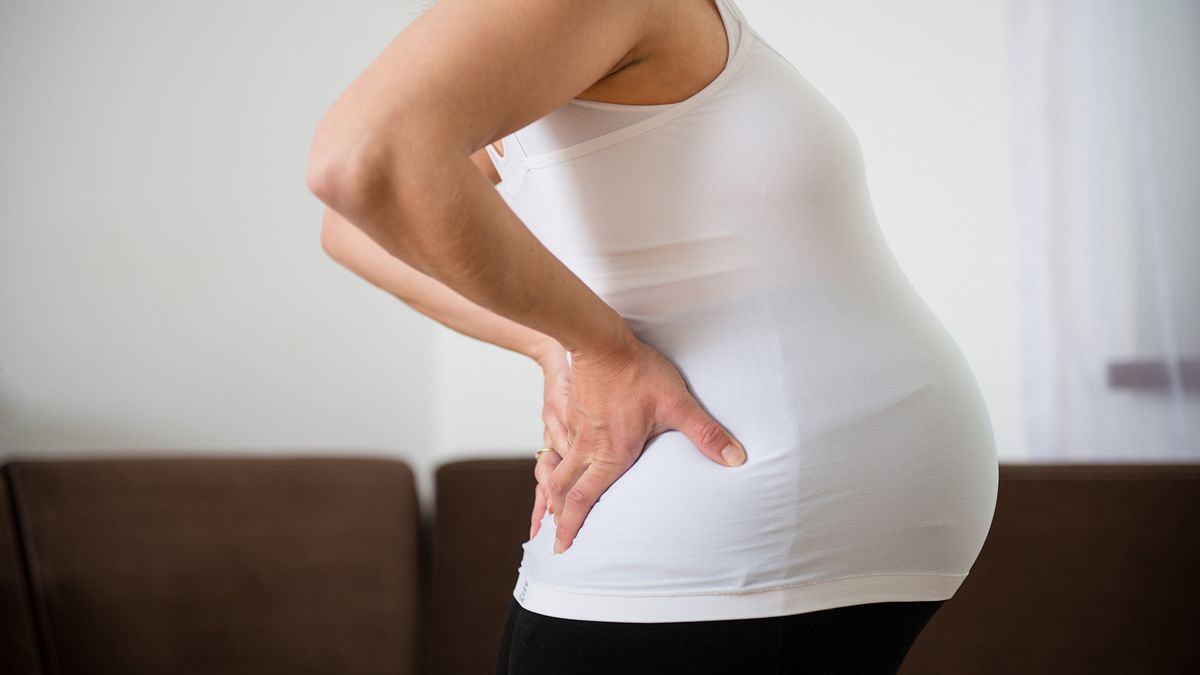 Image Source / Spine Health
Image Source / Spine Health
In the early stages of pregnancy, back pain is most likely to occur. As this is most prevalent throughout the first trimester, it is important to note it as a sign of pregnancy. To prepare the body for labour, your ligaments will stretch, soften and change which in turn, can cause back pain due to the strain on your pelvis.
22. Dizziness
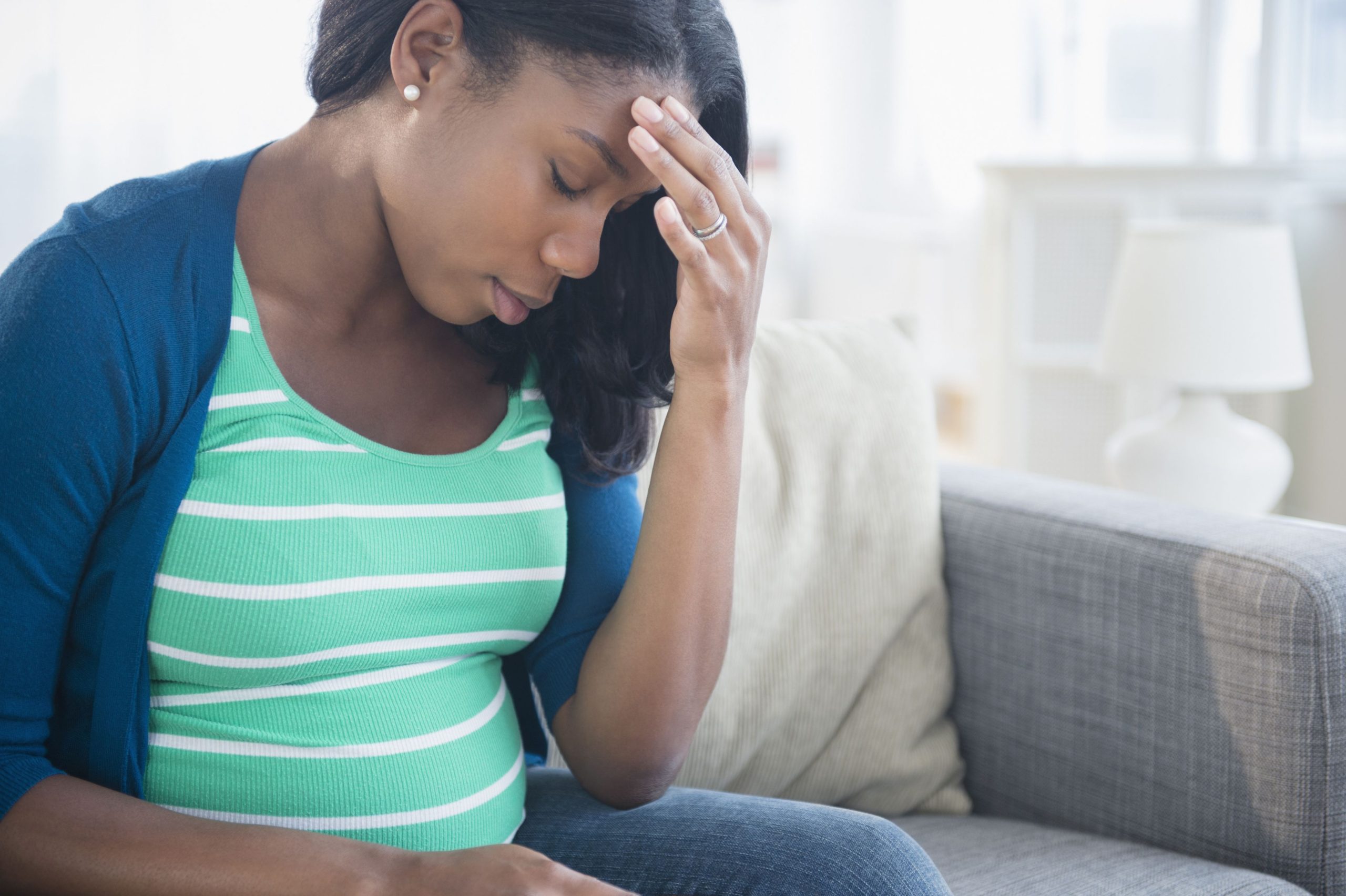 Image Source / Verywell Family
Image Source / Verywell Family
Feelings of dizziness, feelings of lightheaded, and headaches are common during the first stages of pregnancy. This is known to be caused by hormonal levels changing, and blood levels increasing. Hunger, morning sickness, and reduced blood pressure are all other pregnancy symptoms that link with this one. Staying hydrated and taking it slow is the best way to ease these feelings.
23. Changes in Discharge
 Image Source / Ava Braclet
Image Source / Ava Braclet
Throughout the menstrual cycle, your cervical mucus (vaginal discharge) changes colour, odour, and consistency and changes in hormones causes discharge to alter when you become pregnant also. Look out for an increase in vaginal discharge, as its your bodies way to protecting the vaginal tissue free from irritation and infection.
24. Indigestion
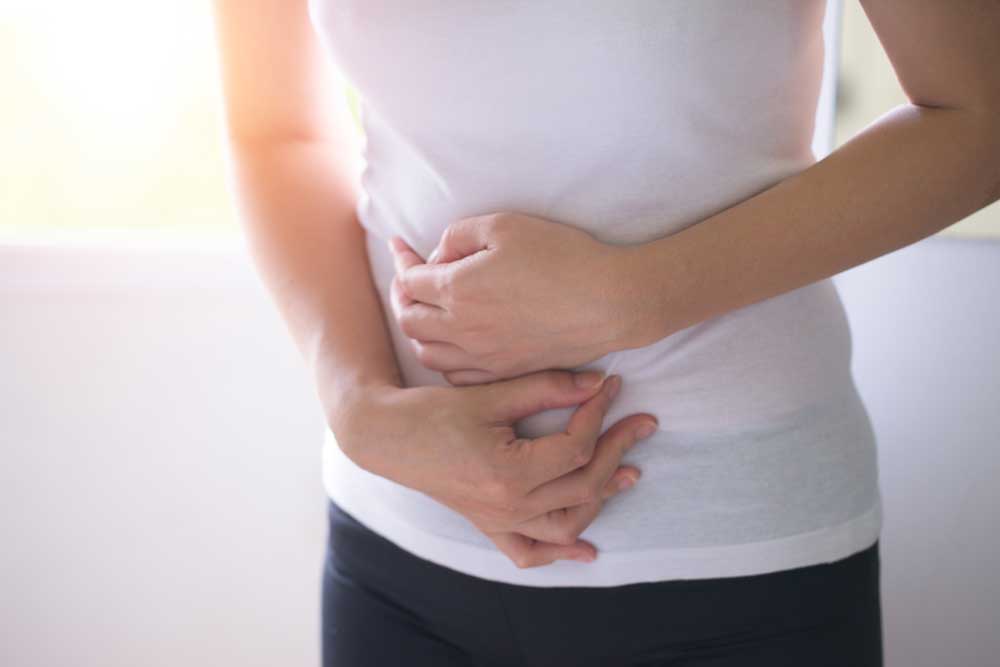 Image Source / First Step Pregnancy Clinic
Image Source / First Step Pregnancy Clinic
Indigestion occurs throughout the duration of a pregnancy and for numerous reasons. The first trimester sees indigestion as a result of drastic hormonal changes, however, later stages in the pregnancy, indigestion can be caused by the baby pushing up against the stomach. Staying hydrated and eating little and often can help ease the chances of indigestion.
25. Excess Saliva
 Image Source / First Cry Parenting
Image Source / First Cry Parenting
Hormone changes can lead to women building up excess saliva in their mouths. Often associated with morning sickness, this should subside by the second trimester however while it is present, it can become quite a nuisance for those who experience it. Ptyalism, as its also known as, can cause some women to produce up to two litres of saliva a day!
26. Hair Changes
 Image Source / Mom Loves Best
Image Source / Mom Loves Best
Everyones hair is different. With pregnancy, everyones hair reacts in a different way. An increase in oestrogen levels can leave your hair thicker, longer, and fall out way less. The texture of hair varies for each person, some experience dry, brittle hair while others become much oilier. Hair can grow in unwanted places too - this is normal!
27. Increased Gas
 Image Source / MedicineNet
Image Source / MedicineNet
Increased gas is another common sign of pregnancy. If you have noticed a change in the amount of gas you are producing, it could be time to take the all important pregnancy test. Physical and hormonal changes can cause gas to appear more frequently throughout the entire pregnancy. As unpleasant as it may be, it is normal and will not affect you or your baby in any way.
28. Melasma
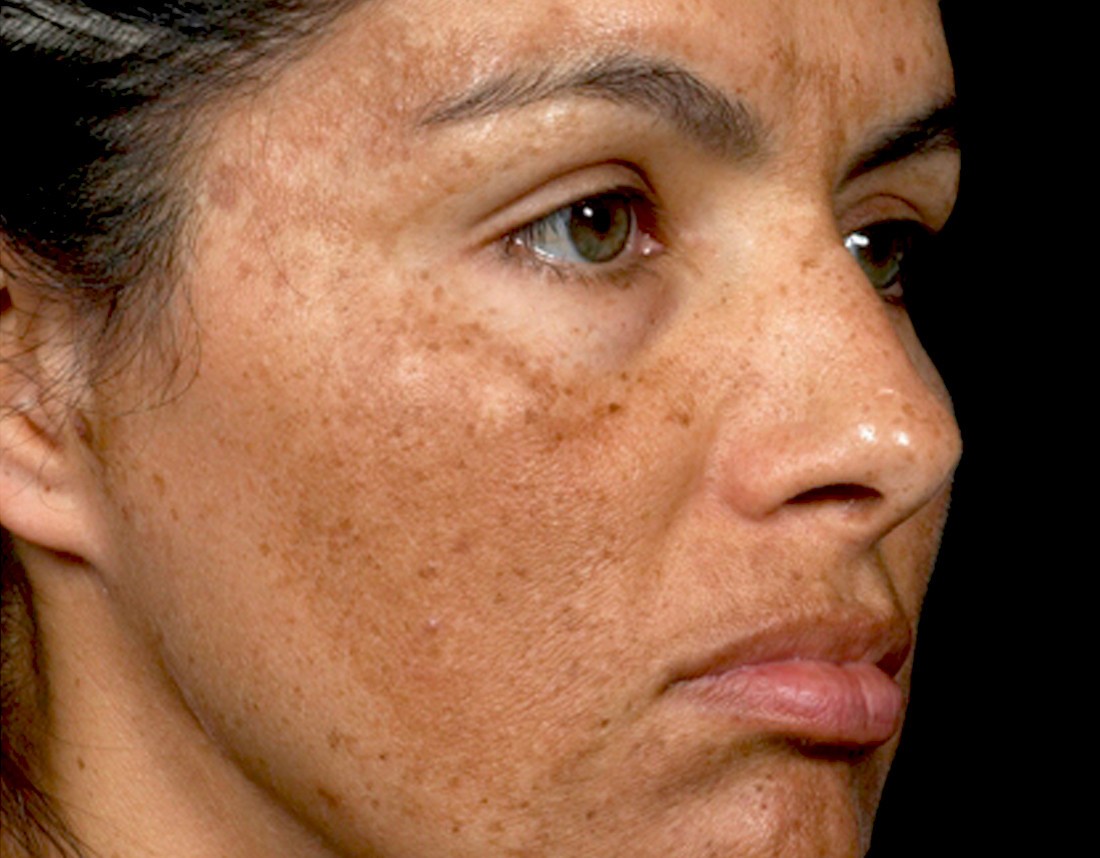 Image Source / Dr. Pimple Popper
Image Source / Dr. Pimple Popper
Labelled the ‘mask of pregnancy’, melasma is a very common pregnancy symptom experienced by women. This consists of blotchy darker skin developing on your face, usually around the lips, cheek and forehead. Like many other pregnancy symptoms, the cause of this is due to hormonal changes. In this case, the change in hormones triggers a temporary increase of melanin produced by the body, causing darker patches of skin.
29. Feeling Full
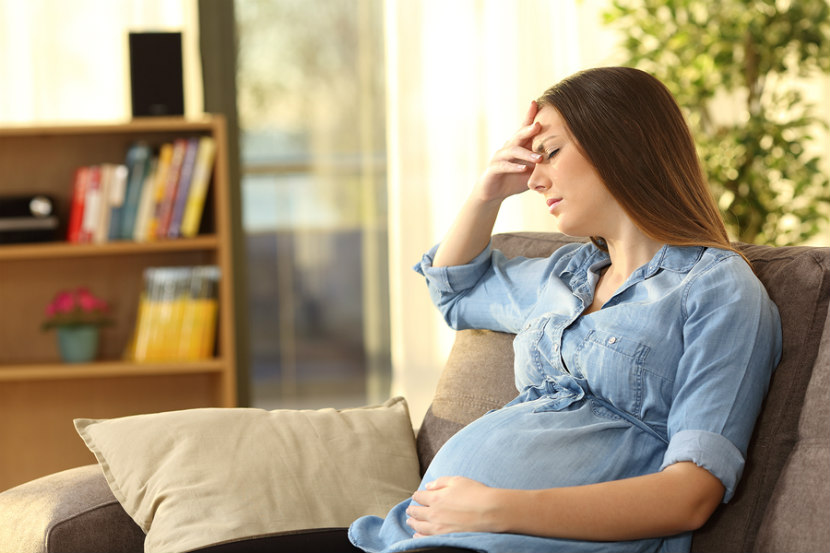 Image Source / Unlock Food
Image Source / Unlock Food
Feeling full is a common sensation experienced by women when they conceive. If you have never been pregnant before, this could be a sign that you miss, or just disregard. This feeling of fullness often comes just before your first missed period, so can be one of the earliest indications that you are pregnant.
30. Vivid Dreams
 Image Source / Healthline
Image Source / Healthline
An altered sleep pattern, and fluctuation of emotions are linked to causing vivid dreams. When your hormones change as you fall pregnant, your brain adapts the way it processes information and increased anxiety levels play a part in to why you may experience vivid dreams. This can also lead to ‘baby brain’ as some people label it as, which can roll over to when you sleep too.
 Image Source / Health Shots
Image Source / Health Shots Image Source / Medical News Today
Image Source / Medical News Today Image Source / Mother & Baby
Image Source / Mother & Baby Image Source / FirstCry Parenting
Image Source / FirstCry Parenting Image Source / What To Expect
Image Source / What To Expect Image Source / Cleveland Clinic Health Essentials
Image Source / Cleveland Clinic Health Essentials Image Source / Medium
Image Source / Medium Image Source / Baby Center
Image Source / Baby Center Image Source / TwinGo Carrier
Image Source / TwinGo Carrier Image Source / Baby Centre
Image Source / Baby Centre Image Source / FirstCry Parenting
Image Source / FirstCry Parenting Image Source / Very Well Mind
Image Source / Very Well Mind Image Source / Mylo
Image Source / Mylo Image Source / Medical News Today
Image Source / Medical News Today Image Source / Harbor Community Health Centres
Image Source / Harbor Community Health Centres Image Source / Medical News Today
Image Source / Medical News Today Image Source / Healthline
Image Source / Healthline Image Source / Medical News Today
Image Source / Medical News Today Image Source / Very Well Health
Image Source / Very Well Health Image Source / BabyCenter
Image Source / BabyCenter Image Source / Spine Health
Image Source / Spine Health Image Source / Verywell Family
Image Source / Verywell Family Image Source / Ava Braclet
Image Source / Ava Braclet Image Source / First Step Pregnancy Clinic
Image Source / First Step Pregnancy Clinic Image Source / First Cry Parenting
Image Source / First Cry Parenting Image Source / Mom Loves Best
Image Source / Mom Loves Best Image Source / MedicineNet
Image Source / MedicineNet Image Source / Dr. Pimple Popper
Image Source / Dr. Pimple Popper Image Source / Unlock Food
Image Source / Unlock Food Image Source / Healthline
Image Source / Healthline